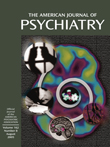Paradigms of Personality Assessment
Jerry Wiggins’ seminal text Personality and Prediction was published in 1973 (1). Since that time, there have been few graduate students in clinical psychology who have not had the pleasure of immersing themselves in Wiggins’ rich treatise on the complexities and intricacies of clinical assessment (2). His 1973 text is indeed a classic. Many reviewers and colleagues have asked when it would be updated. It never has, yet it is still being used to this day in graduate assessment courses.
Dr. Wiggins has now written a closely related text, Paradigms of Personality Assessment, that may also become a classic. He outlines within this text five basic paradigms of personality assessment: the psychodynamic (conscious and unconscious psychological conflicts), the interpersonal (regularities in how the person relates to others), the personological (the person’s life history), the multivariate (the person’s relative standing on standardized measures of personality traits), and the empirical (established empirical correlates with respect to traditional categories of psychiatric impairment). He covers with considerable sophistication the complexities, nuances, and fundamental issues of each perspective, but he also intersperses the scholastic explications with engaging historical background. If one wishes to learn the basic principles and major issues of each fundamental paradigm, this text will provide a sophisticated education in a manner that is not only readily understandable but also enjoyable to read.
As if that were not enough, the second half of the book is devoted to the assessment of an individual, “Madeline,” by well-recognized experts of each of the five basic paradigms. Dan McAdams assesses her personality and clinical functioning using his rich psychobiographical interview. Sidney Blatt and Rebecca Behrends use the perspective and tools of the psychodynamic paradigm. Aaron Pincus and Michael Gurtman use the theoretical model and tools of the interpersonal paradigm. Paul Costa and Ralph Piedment use five-factor model assessments for both self and spouse. Finally, Yossef Ben-Porath uses the MMPI-2. These eminent investigators provide their assessments largely blind to one another, and, if I can speak colloquially, this was a cool idea. Madeline is an outstanding choice for this exercise. Not only does she have a very colorful personality and intriguing life history, but the book also includes a follow-up to her life story years after the original assessments were conducted (the follow-up is provided by Krista Trobst and Jerry Wiggins), which adds an intriguing clinical relevance and predictive validity component.
In sum, this is an outstanding book. It is a labor of both intelligence and love. Not only will you learn a lot, but you will also appreciate the passionate fondness that the author holds for each of the fundamental paradigms.
1. Wiggins JS: Personality and Prediction: Principles of Personality Assessment. Reading, Mass, Addison-Wesley, 1973Google Scholar
2. Wiggins JS: Paradigms of personality assessment: an interpersonal odyssey. J Pers Assess 2003; 80:11–18Crossref, Medline, Google Scholar



